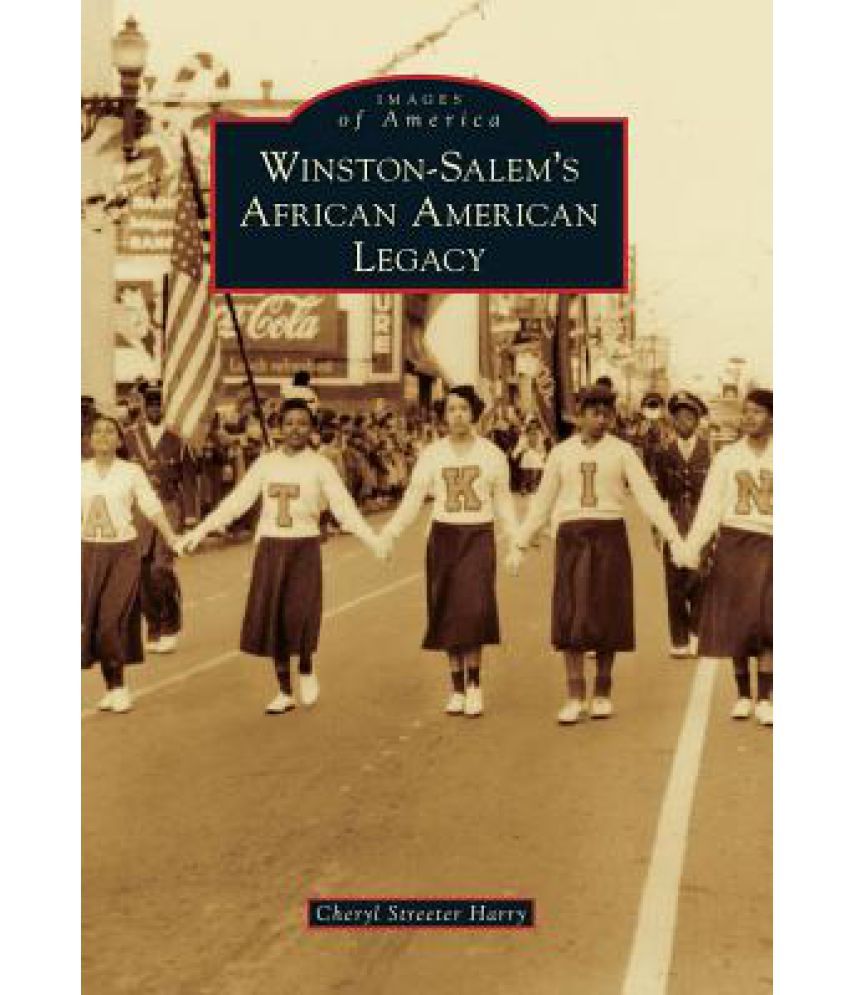Something went wrong. Please refresh the page and try again.
Something went wrong. Please refresh the page and try again.
Notifications can be turned off anytime from settings.
Item(s) Added To cart
Qty.
Something went wrong. Please refresh the page and try again.
Something went wrong. Please refresh the page and try again.
Exchange offer not applicable. New product price is lower than exchange product price
Please check the updated No Cost EMI details on the payment page
Exchange offer is not applicable with this product
Exchange Offer cannot be clubbed with Bajaj Finserv for this product
Product price & seller has been updated as per Bajaj Finserv EMI option
Please apply exchange offer again
Your item has been added to Shortlist.
View AllYour Item has been added to Shopping List
View AllSorry! Winston-Salem's African American Legacy is sold out.


You will be notified when this product will be in stock
| ||||||||||||||
Brief Description
Winston-Salem was created in 1913 when the City of Winston and the Town of Salem merged. Salem was established in 1766 by the Moravian Church as a devout religious community. The county seat of Winston was formed out of Salem in 1849. African Americans had no voice in the consolidation; however, these descendants of slaves built a legacy in a "separate and unequal" municipality in the 20th century. The thriving tobacco industry delivered swift progress for African Americans in the Twin City, placing them on the level of the "Black Wall Street" cities in the South. Slater Industrial Academy (now Winston-Salem State University) provided the educational foundation. WAAA radio gave the community an active voice in 1950. Winston-Salem's African American Legacy showcases the significant contributions through the lens of the city's historical
Learn More about the Book
Winston-Salem was created in 1913 when the City of Winston and the Town of Salem merged. Salem was established in 1766 by the Moravian Church as a devout religious community. The county seat of Winston was formed out of Salem in 1849. African Americans had no voice in the consolidation; however, these descendants of slaves built a legacy in a separate and unequal municipality in the 20th century. The thriving tobacco industry delivered swift progress for African Americans in the Twin City, placing them on the level of the Black Wall Street cities in the South. Slater Industrial Academy (now Winston-Salem State University) provided the educational foundation. WAAA radio gave the community an active voice in 1950. Winston-Salem s African American Legacy showcases the significant contributions through the lens of the city s historical cultural institutions."
About the Author
Cheryl Harry is a cultural curator whose mission is engaging the community in the preservation and celebration of black heritage. She develops educational and outreach programming to spawn dialogue among people of all backgrounds and ethnicities. She is the director of African American programming at Old Salem Museums & Gardens. Images in Winston-Salem s African American Legacy are from local archives and private collections.
The images represent actual product though color of the image and product may slightly differ.
Register now to get updates on promotions and
coupons. Or Download App